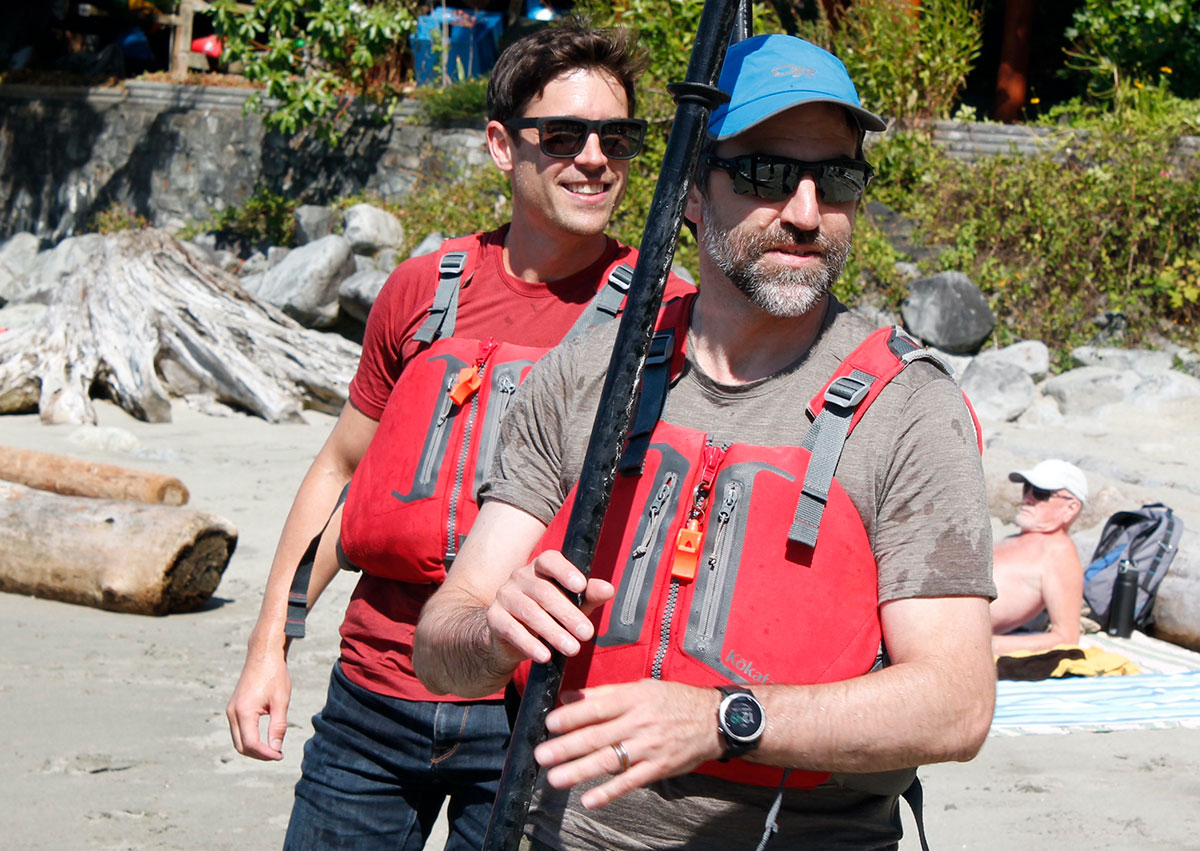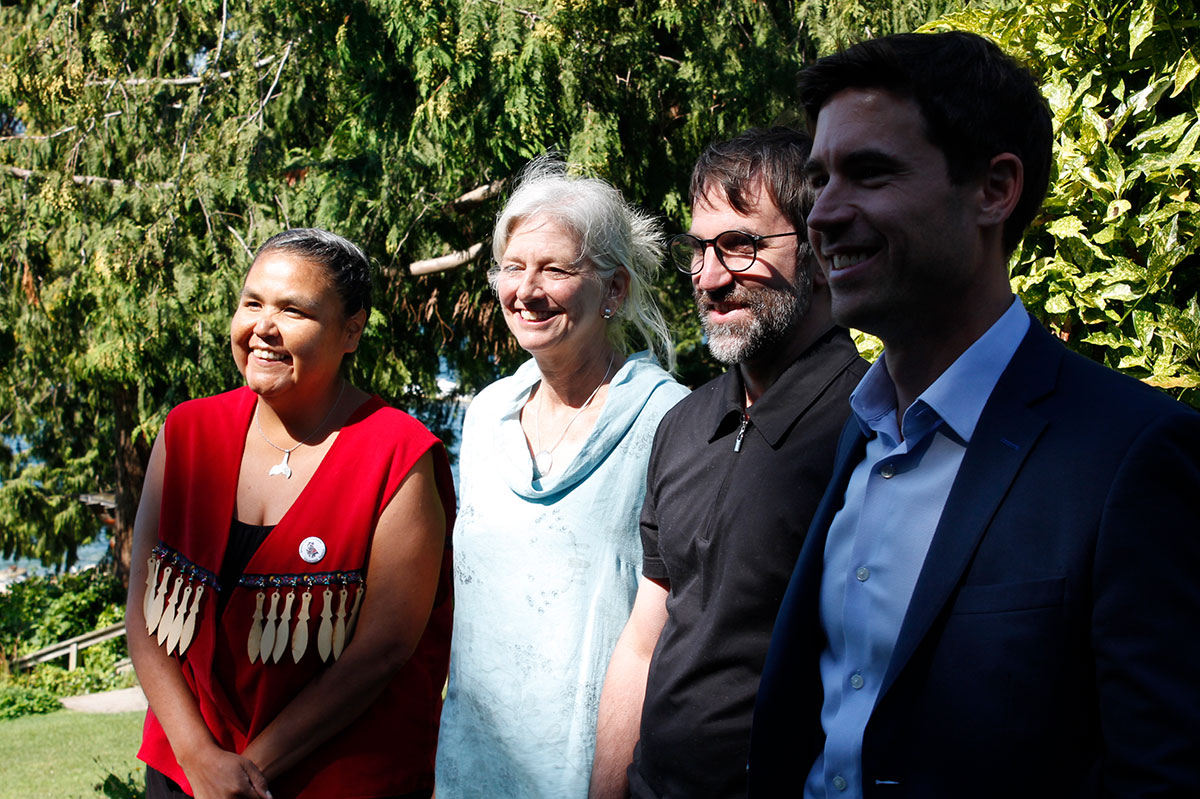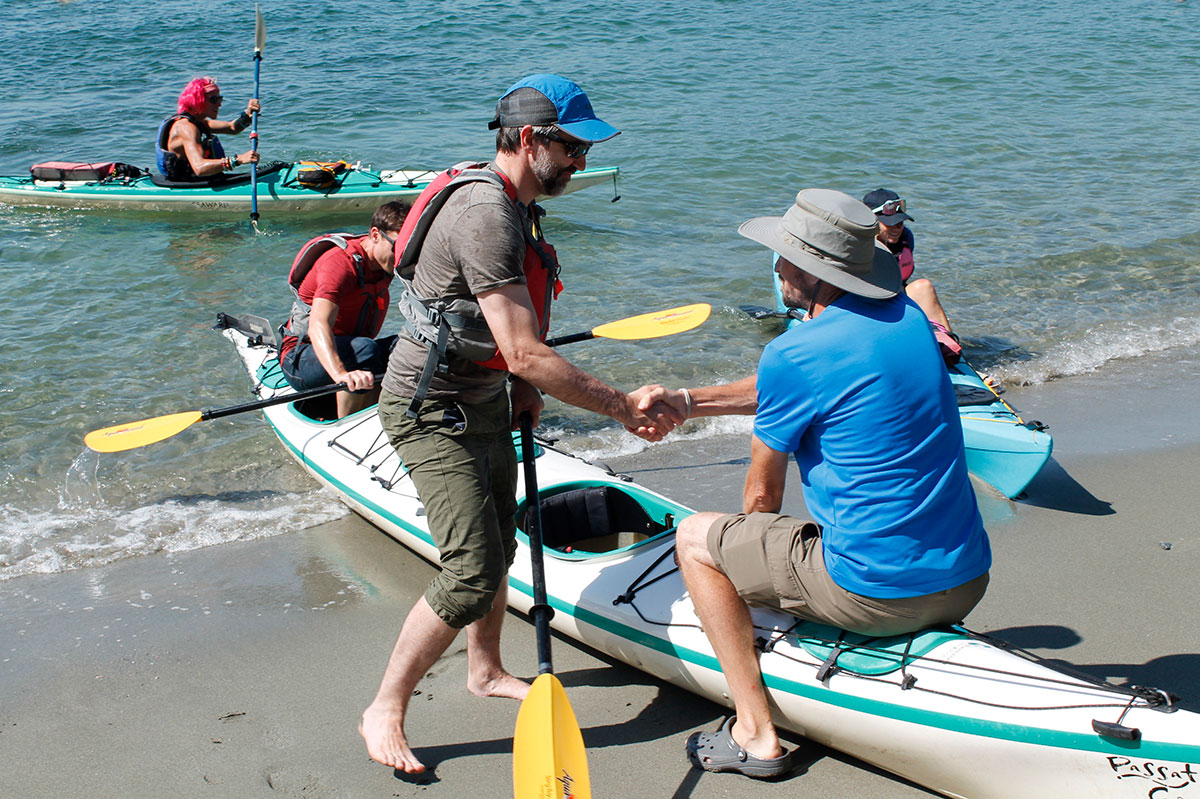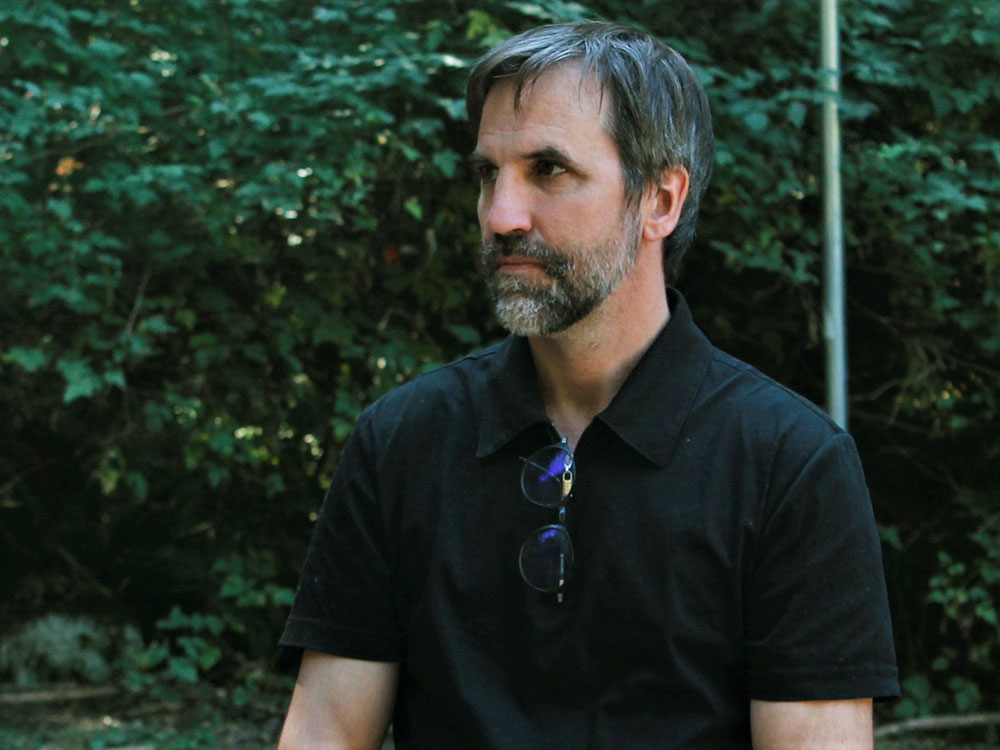When Steven Guilbeault became Canada’s environment minister he was assigned a lengthy mandate letter which boils down to, more or less: fix climate change, please.
In fact, his official title is Minister of Environment and Climate Change — a mantle he wears after being an environmental activist for 30 years before he transitioned to politics.
At age four he staged a tree sit to protect a neighbourhood forest from development in La Tuque, Quebec. As an adult he co-founded Equiterre, the largest environmental organization in the province. He once scaled the CN Tower for Greenpeace to demand Canada ratify the Kyoto Protocol.
He's a stalwart bike commuter year-round in Montreal and says he’ll never own a car. But when he signed up to be a politician and was elected as a Liberal MP in the Montreal riding of Laurier–Sainte-Marie in 2019, it was just over year after the party had bought the Trans Mountain pipeline.
So what does Guilbeault say Canada can and will do to fix climate change? The Tyee sat down with him at Lighthouse Park in West Vancouver yesterday, just after he announced a federal investment of nearly $1 million over four years to increase biodiversity conservation efforts in the Átl'ka7tsem/Howe Sound Biosphere Region. The following interview has been condensed for length and clarity.
The Tyee: You've been tasked with reducing methane emissions by 75 per cent below 2012 levels by 2030. This is a province that's trying to radically expand its LNG industry. Just one project, LNG Canada, will increase its greenhouse gas emissions by 8.6 megatonnes of greenhouse gases per year in 2030 and 9.6 megatonnes per year by 2050. How are you working with B.C. to reduce emissions as the emission-producing industry is being built?
Minister Guilbeault: As you may know we already have methane regulations for the oil and gas sector. We have goals of reducing the emissions in those sectors by 40 to 45 per cent by 2025. This will largely be done through investment in technologies. We're not looking at carbon capture but existing technologies. Right now the emissions that we're seeing can go to 40 to 45 per cent. Companies can do that, using existing technology, in a cost effective manner. They make money doing this.
We're still doing the analysis in terms of going to 75 per cent emission reduction. But the industry will have to — it will be a regulation. Regardless of the level of their emissions they will have to figure it out. Regulations are not technologically prescriptive. They don't say you need to use x technology or y technology. We're telling them: this is the target and you figure it out.
That's what they tell us they prefer doing. They don't like us telling them how to do it. So they will be mandated by law to achieve those goals.
Speaking of emissions, the federal government has said it will cap emissions but is excluding emissions from the products we export, like oil and gas — products entirely designed to be burned and emit greenhouse gas emissions. If the government was serious about reducing emissions why not full-count every single emission we create to better understand total emissions and how to reduce them?
One word, IPCC. We're using IPCC [Intergovernmental Panel on Climate Change] guidelines for our greenhouse gas inventories, as are most of the countries in the world. The way the IPCC guidelines have been written is that you count the emissions at the point of combustion. We're doing what everyone else around the world is doing at the proposal of the IPCC.
Should the IPCC change their guidelines to move towards what some people call full-carbon accounting then Canada would certainly be happy to do that. But no country that I know is including its scope-three emissions in its national inventories. No one is doing that. These emissions are captured somewhere. They're not escaping to the world greenhouse gas accounting system.

Canada, a petrostate, is one of the biggest per-capita emitters in the world. Shouldn't we be more conscious of full-carbon accounting, even if the IPCC doesn't recommend it?
I think we are taking our international responsibilities very seriously. We've doubled our international climate finance, to $5.3 billion. And we’ve doubled investments in our climate plan.
We recognize our historic responsibility. We're doing a lot of things to try and make up for the fact that we are a large emitter. The fact that we're not counting scope-three emissions doesn't mean that we don't take our responsibility very seriously.
The federal government has banned the sale of internal combustion engines for light duty vehicles by 2035. Phasing out ICE cars will reduce emissions on the road, but this upholds the core problem of promoting personal vehicles instead of public and active transit. Why did the government choose to promote personal vehicles instead of strongly taxing or prohibiting personal vehicles and promoting and investing in public transit?
I would challenge that assumption, because we're investing about 10 times more in transit than we're investing in electrification. People only talk about the electrification stuff. I know people like electric vehicles. It's hot, it's hip, it's cool. But our investments in transit are in the order of $30 billion between when we started a few years ago to 2030. Our investments in electrification are in the order of around $2.5 billion — though I don't have those numbers right in front of me.
So we are doing exactly what you're saying. Not only that, but we're the first government in the history of this country to have a permanent fund dedicated to active transportation infrastructure.
As a bike activist I could only dream of a federal government that would invest with my community and municipality in new bike infrastructure. That didn't happen until now. Some people say it's only $400 million. But it's $400 million every year! It could it be more, of course, but it is making a difference all around the country.
When you look at the pyramid of transportation the first thing you want to do is “avoid.” So by making cities more bikeable, more walkable with more public transit, that's exactly what we're doing. Further down you're trying to transform, change to other technology. I don't own a car. I've never owned a car, I'm highly unlikely to ever own a car. I'm part of a car co-op in Montreal and bike 12 months of the year when in the city. I believe in this and this government believes in this as well.
Canada's forests are now considered carbon sources, meaning they emit more carbon than they absorb in a given year. Forests are provincial jurisdiction but the Supreme Court has ruled pollution is federal jurisdiction. Would the federal government ever intervene in B.C.'s forests to try and prevent forest fires and their resulting pollution?
You want another federal-provincial fight? I don't think there's enough of them going around (laughs).
I'm having strong discussions with most of my provincial leaders about carbon pricing. I just got a letter today from a number of premiers who say, “Carbon pricing is too hard. It's too complicated. You can't do it.”
We live in a political system with separate federal and provincial responsibilities. What we're trying to do on climate change is to ensure that everyone is taking on their responsibilities.

Coming back to oil and gas, I know there are people out there who say we should be capping production. That's a point of view I respect. But constitutionally we can’t really do that. Same thing with resource management.
In B.C. we're signing an agreement for $50 million to protect old-growth forest, which will protect about 400,000 hectares of old growth in the province. This is an example of things we can do without necessarily encroaching on provincial jurisdiction.
But the reality is we're getting sued on just about everything we do. We got sued on carbon pricing. Then when we won in the Supreme Court we got sued on the application of carbon pricing. We're getting sued on impact assessment [Bill] C-69. We're getting sued on plastics — actually we have two different court cases on plastics. If we can't show the court what we're doing respects the Constitution, respects jurisdictions and has a level of regulatory legislative preparedness we will lose in the courts.
I'm curious what you'd apply the carbon pricing to. How would you measure it? B.C. currently estimates emissions from forest fires, for example, but does not include those emissions in its official emissions count.
There are a number of ways to count carbon emissions — it’s something that we're looking at very closely. We want to make sure what we are reporting in our greenhouse gas inventories, either in Canada or to the UN, is as an accurate reflection of what nature is seeing or the atmosphere is seeing.
But to your question of if we could apply carbon pricing to a naturally occurring, or climate change-induced natural event? That's not in the books.
How is the commitment to phase out fossil fuel subsidies by 2023 going?
It's part of our agreement with the NDP and you may have seen that in the last budget we phased out another one. We said it would happen and it is going to happen.... We will encourage our provincial counterparts to do what we're doing but we can't dictate what provinces decide to do or not do.
There's a lot of talk about a just transition to ensure workers in the oil and gas industry aren't left behind as their industries wind down. Statistics Canada says the oil and gas industry employed 72,800 people in 2019, but only a fraction of those workers are specialized and will need retraining to pivot to another industry. The oil and gas industry exacerbates climate change, which killed 602 people in B.C. in 2021 — 595 due to extreme heat, five due to extreme flooding and two due to extreme wildfire. This seems like we're worrying about tens of thousands of people's jobs but not hundreds of people's lives. How do you square that?
Since the beginning of the year, we've published regulations on the fields tender to force gasoline and diesel distributors to reduce the carbon footprint of their product. We have a discussion paper out on the oil and gas cap. We're discussing regulation on the zero emission vehicle mandate. We have a new target for reducing methane's. We've launched a consultation paper that will lead to regulation on a net-zero grid by 2035.
We've done all that in the last eight months and we're moving ahead with a more stringent pricing system across the country. We're not waiting on anything to move on climate change and to ensure that we reduce our emissions as fast as possible.

I think the just transition piece is an important component of everything we're doing to ensure we do it in a way that is fair and trusted. It's about workers but it's also about communities as well because some communities will be heavily impacted. So how do we work with them? What does the future look like for them? We're not waiting to act until we have a just transition. We're moving all of these pieces relatively at the same time.
Canada has missed every emissions reduction target it has set. Now we've got the goal of reducing emissions by 40 per cent below 2005 levels by 2030 and being net-zero by 2050. The climate crisis is killing people in this province and we've got a poor track record of hitting our emissions targets. Why should Canadians trust the federal government when it says it's doing something about climate change now?
Show me a time in our history where our government has done half of the things we've done in terms of investment. Everyone's talking about how the new U.S. inflation act bill was passed. And it's $300 billion of investment. We're investing $110 billion.
The U.S. hasn't started — we've been at it for five years, or six. So proportionately we're doing three times more in terms of investment than the U.S. is doing. We're doing pricing — unfortunately they won't for the foreseeable future. The U.S. is advancing on methane on zero emission vehicles. They don't have a cap on oil and gas, they don't have a federal clean fuel standard.
No government has ever tried the way we have. I think that's what gives me hope. But we need to do the work and we need to keep going at it every day.
There are things that are still being developed; regulation, for example, or the oil and gas cap.
Canada missed all of its previous targets because we didn't try. We had no real plans, certainly no measures. Now we have all these things. We have fiscal measures, we have financial measures, we have regulations, we have legislation, we're throwing everything at it, and I'm confident that we will get there. But we need to do the work. ![]()
Read more: Federal Politics, Environment
















Tyee Commenting Guidelines
Comments that violate guidelines risk being deleted, and violations may result in a temporary or permanent user ban. Maintain the spirit of good conversation to stay in the discussion.
*Please note The Tyee is not a forum for spreading misinformation about COVID-19, denying its existence or minimizing its risk to public health.
Do:
Do not: